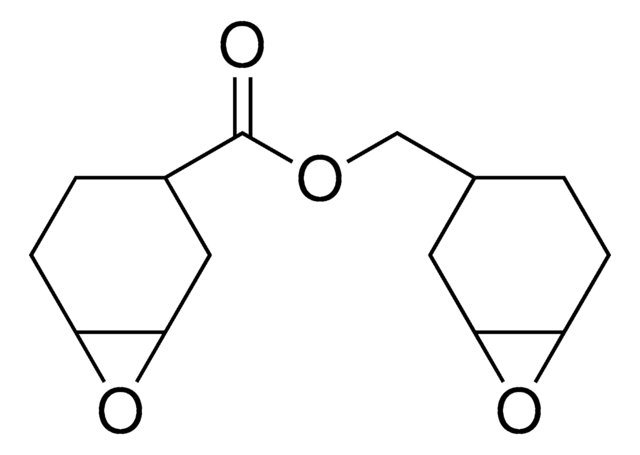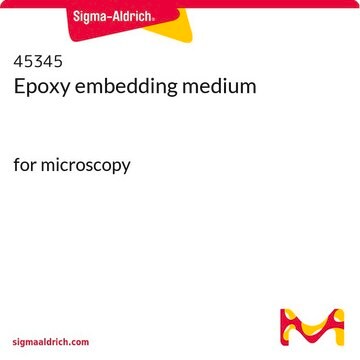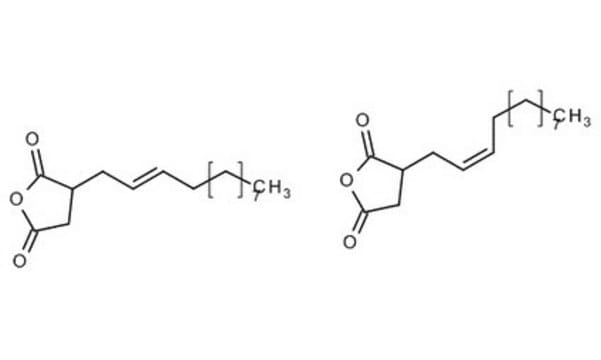235431
Methyl-5-norbornene-2,3-dicarboxylic anhydride
90%
Synonym(s):
Methyl nadic anhydride
About This Item
Recommended Products
vapor density
6.1 (20 °C, vs air)
Quality Level
vapor pressure
5 mmHg ( 120 °C)
Assay
90%
form
liquid
refractive index
n20/D 1.506 (lit.)
density
1.232 g/mL at 25 °C (lit.)
SMILES string
[H][C@]12C3CC(C(C)=C3)[C@@]1([H])C(=O)OC2=O
InChI
1S/C10H10O3/c1-10-6-3-2-5(4-6)7(10)8(11)13-9(10)12/h2-3,5-7H,4H2,1H3/t5-,6+,7+,10+/m0/s1
InChI key
LTVUCOSIZFEASK-MPXCPUAZSA-N
Looking for similar products? Visit Product Comparison Guide
Application
- as curing agent in the preparation of vertically aligned and penetrated carbon nanotube/polymer film
- in the synthesis of methyl nadimides endcapped resins based on tris(3-aminophenyl)phosphine oxide
Signal Word
Danger
Hazard Statements
Precautionary Statements
Hazard Classifications
Acute Tox. 4 Oral - Resp. Sens. 1 - Skin Corr. 1C - Skin Sens. 1
Storage Class Code
8A - Combustible corrosive hazardous materials
WGK
WGK 1
Flash Point(F)
275.0 °F
Flash Point(C)
135 °C
Personal Protective Equipment
Choose from one of the most recent versions:
Already Own This Product?
Find documentation for the products that you have recently purchased in the Document Library.
Customers Also Viewed
Our team of scientists has experience in all areas of research including Life Science, Material Science, Chemical Synthesis, Chromatography, Analytical and many others.
Contact Technical Service
















